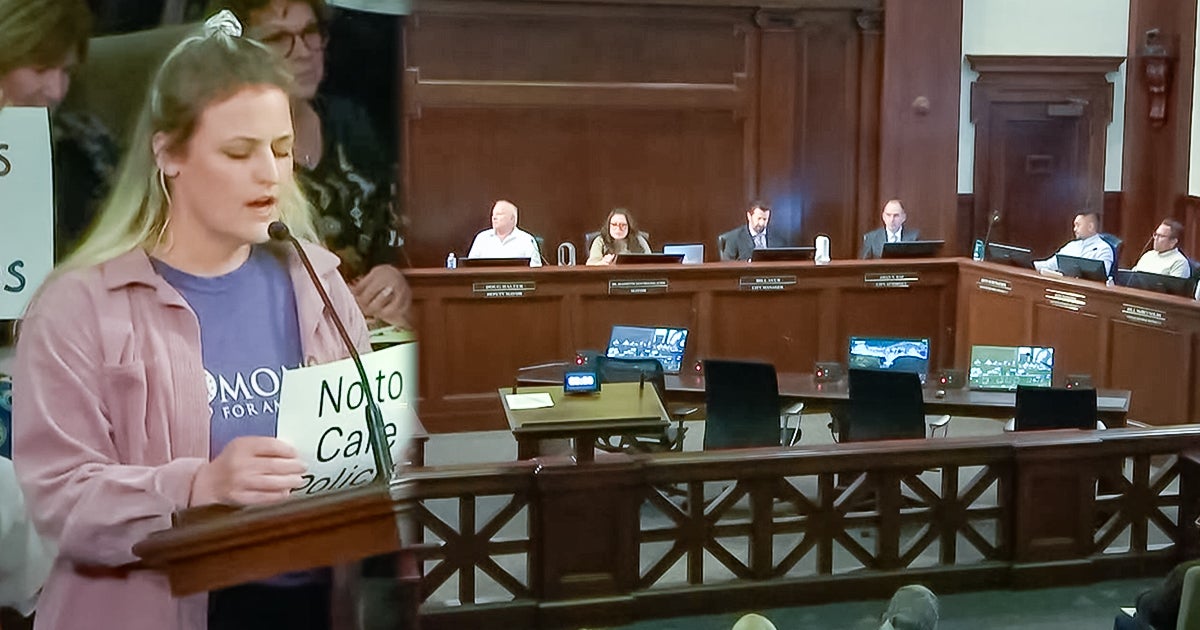
by Jorge Gomez • 3 minutes
The mayor of Ventura, California ordered First Liberty client, Tarin Swain, to stop praying during her time for public comment at a city council meeting.
Tarin, a mom and a devout Christian, had prepared a three-minute speech to express concern about policies affecting her children. But, because of the number of speakers, the city cut each person’s time to only 60 seconds. As Tarin waited, she felt compelled to set the speech aside and use her time to pray.
But when she bowed her head and began, the room immediately became chaotic. Her prayer was met with booing and shouting from those in attendance. She continued to pray through the uproar until the mayor interrupted and ordered Tarin to stop: “We don’t do prayer.” The crowd applauded and cheered when the mayor halted Tarin’s prayer.
First Liberty sent a letter to the city this week demanding the mayor apologize to Tarin, repeal any policy that prohibits prayer, and provide written assurance that speakers will be allowed to engage in prayer during their time for public comment.
More than 100 people spoke during the meeting and expressed their viewpoints using different signs and images. One man in a yellow hard hat even held up a bird puppet and “interpreted” its squawks, while holding a ukulele in his other hand. Notably, the crowd remained calm and quiet for that 60 seconds of performance art.
But the city deemed Tarin’s prayer a bridge too far. She was the one person silenced because of what she said, even though everyone else was allowed to speak without interruption.
In another twist of irony, the city council meeting opened with Mayor Jeannette Sanchez-Palacios reciting the Pledge of Allegiance.
Despite the clear religious reference to “one nation under God,” the mayor still said her city doesn’t do prayer and proceeded to trample on a private citizen’s constitutional right to express a religious viewpoint.
“It’s gross viewpoint discrimination when the City of Ventura allows all types of expression during public comments except for a religious prayer,” said Erin Smith, Associate Counsel at First Liberty. “Silencing a private citizen’s prayer during public comment time at a public meeting is abhorrent to the First Amendment.”
Our letter explains that the rules that govern the prayer practices of legislative bodies do not apply to citizens’ public comments. We make it clear that private citizens speak on their own behalf, not on behalf of the government.
Many U.S. Supreme Court decisions—including First Liberty’s landmark victory in Kennedy v. Bremerton School District—have held that government must treat religious viewpoints with equal respect to secular viewpoints. If a city allows secular statements during public comment time, then it cannot ban religious statements or prayer.
In Kennedy, The Supreme Court made clear:
“Respect for religious expressions is indispensable to life in a free and diverse Republic. Here, a government entity sought to punish an individual for engaging in a personal religious observance, based on a mistaken view that it has a duty to suppress religious observances even as it allows comparable secular speech. The Constitution neither mandates nor tolerates that kind of discrimination.”
“Any concerns about observers believing the City Council has ‘endorsed’ prayers would also be misplaced, as the Supreme Court no longer considers the appearance of endorsement in evaluating Establishment Clause claims,” our letter states. “The Establishment Clause is not violated merely because a government entity permits private religious expression or speech.”
The city’s actions against Tarin are an unlawful attempt to regulate religion and suppress dissent. Prayer offered by citizens at public meetings is embedded in the history and tradition of our nation. Silencing religious expression in a public forum betrays what religious freedom in America is all about.
The mayor’s gavel does not have the authority to stamp out a private citizen’s prayer that is protected by the First Amendment. Ventura’s Mayor must do what’s right, follow the law and ensure Tarin—and all religious Americans—can pray and speak freely without being censored.